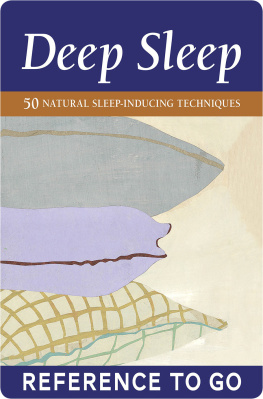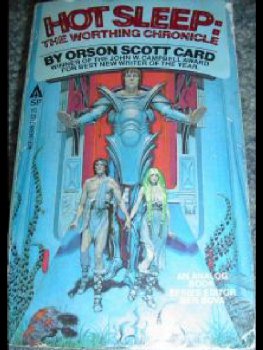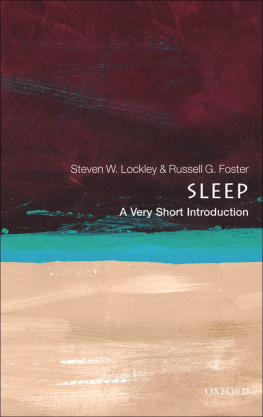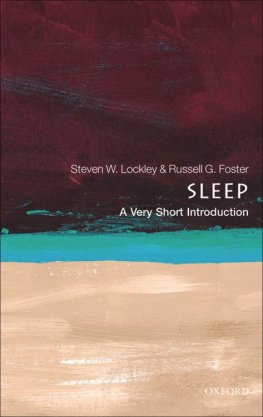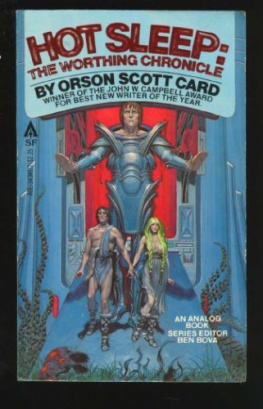Chronicle Books - This Book Will Put You to Sleep
Here you can read online Chronicle Books - This Book Will Put You to Sleep full text of the book (entire story) in english for free. Download pdf and epub, get meaning, cover and reviews about this ebook. year: 2018, publisher: Chronicle Books LLC, genre: Religion. Description of the work, (preface) as well as reviews are available. Best literature library LitArk.com created for fans of good reading and offers a wide selection of genres:
Romance novel
Science fiction
Adventure
Detective
Science
History
Home and family
Prose
Art
Politics
Computer
Non-fiction
Religion
Business
Children
Humor
Choose a favorite category and find really read worthwhile books. Enjoy immersion in the world of imagination, feel the emotions of the characters or learn something new for yourself, make an fascinating discovery.

- Book:This Book Will Put You to Sleep
- Author:
- Publisher:Chronicle Books LLC
- Genre:
- Year:2018
- Rating:4 / 5
- Favourites:Add to favourites
- Your mark:
- 80
- 1
- 2
- 3
- 4
- 5
This Book Will Put You to Sleep: summary, description and annotation
We offer to read an annotation, description, summary or preface (depends on what the author of the book "This Book Will Put You to Sleep" wrote himself). If you haven't found the necessary information about the book — write in the comments, we will try to find it.
This Book Will Put You to Sleep — read online for free the complete book (whole text) full work
Below is the text of the book, divided by pages. System saving the place of the last page read, allows you to conveniently read the book "This Book Will Put You to Sleep" online for free, without having to search again every time where you left off. Put a bookmark, and you can go to the page where you finished reading at any time.
Font size:
Interval:
Bookmark:
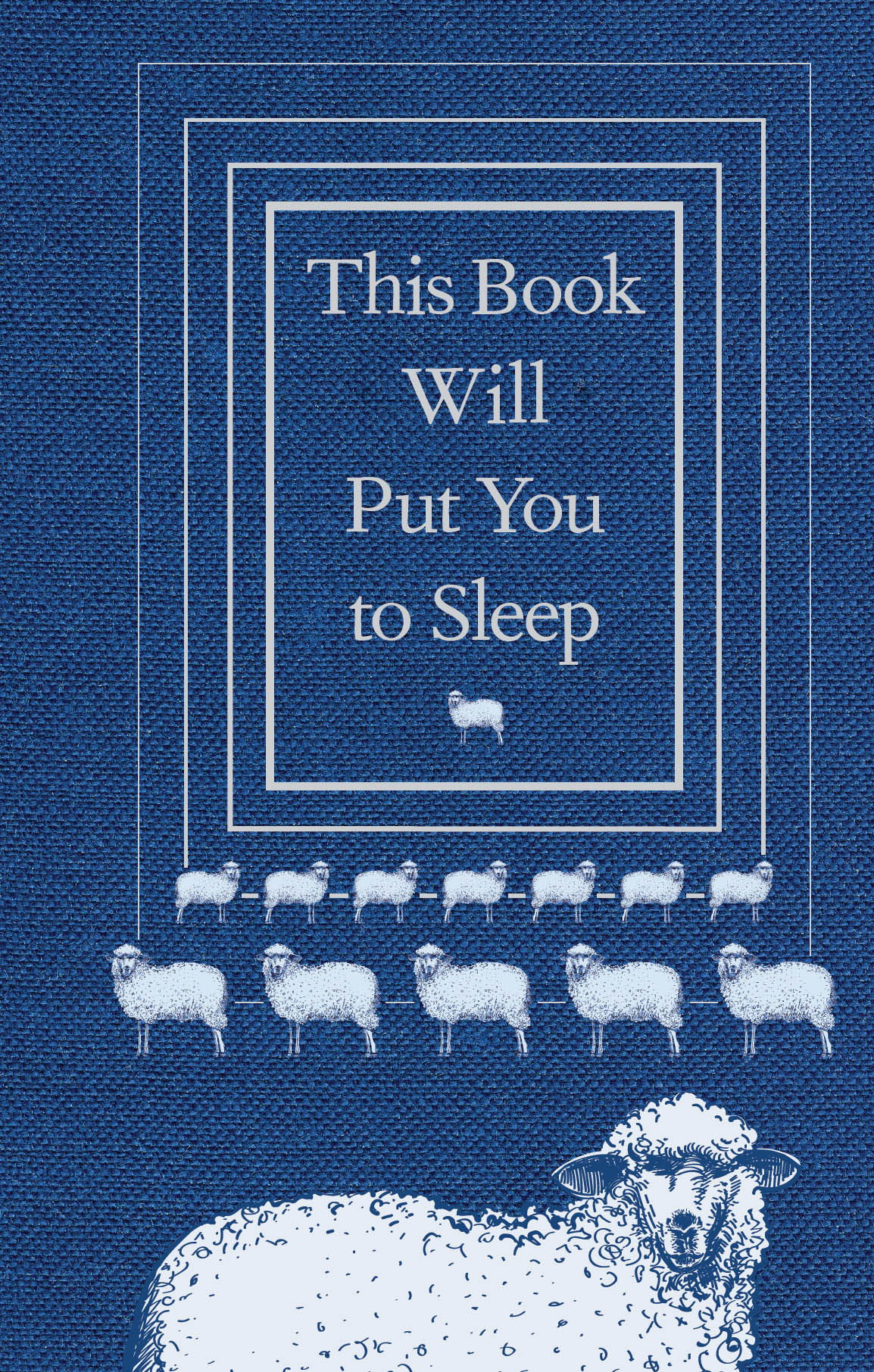


First published in the United States in 2018 by Chronicle Books LLC.
First published in the United Kingdom in 2018 by Ebury Press, a division of the Penguin Random House Group. Copyright 2018 by Professor K. McCoy and Dr Hardwick. All Rights Reserved. No part of this book may be reproduced in any form without written permission form the publisher.
ISBN: 978-1-4521-7379-5 (epub, mobi)
Library of Congress Cataloging-in-Publication Data is available.
ISBN: 978-1-4521-7361-0 (hardcover)
Illustrations on by Diane Law
Illustration on cover (and throughout) serg_65/
Cover design and typesetting by Neil Egan
Chronicle Books LLC
680 Second Street
San Francisco, CA 94107
www.chroniclebooks.com
Chronicle Books publishes distinctive books and gifts. From award-winning childrens titles, bestselling cookbooks, and eclectic pop culture to acclaimed works of art and design, stationery, and journals, we craft publishing thats instantly recognizable for its spirit and creativity. Enjoy our publishing and become part of our community at www.chroniclebooks.com.
In our many years of research at the Institute of Pointless Studies, one important question that we have tried to address is the problem of insomnia and insufficient sleep. If you are trying to get sufficient sleep, it is important to have as little mental stimulation as possible. The most desirable state of mind to cultivate is one of boredom, lassitude and disinterest. As part of our research we have studied hypnotic states, somnambulism, stereotypical lethargy, mind-decelerating pharmacology and devoid phenomenology. In one five-year experiment, Professor K. McCoy encouraged her subjects to spend 15 hours a day in a darkened room listening to white noise and meditating on the void. Unfortunately none of the subjects were willing to continue to the end of the experiment, but the preliminary results in terms of sleep were most encouraging.
While some of the traditional methods of getting to sleep, such as counting sheep or listening to sounds of ocean waves, have had erratic results in experimental settings, we have established that the most consistently successful strategy is to read a book until you achieve a state of sufficient sleepiness. The challenge is to avoid books that are too exciting or intriguing, as the last thing you want when you are preparing for sleep is powerful mental stimulation. Many novels or works of nonfiction have at least some ability to fascinate the reader and to provoke unwanted trains of thought which, if not checked, may spiral into a state of dreadful wakefulness.
As a response to this discovery we compiled this collection of short texts. Each page is guaranteed to be devoid of excitement. All challenging or stimulating elements have been removed, and we have endeavoured to set and design the text in such a way as to befuddle the mind, inducing a state of hypnotic dreaminess and languor. The text has been prepared by a team of high-grade bores, emotionless drones and experts in dispiritingly pointless areas of academia. Professor McCoys illustrations and designs add an additional layer of soporific confusion which is guaranteed to induce a powerful state of lethargy. In experiments, these texts have put 97 per cent of subjects to sleep within ten minutes 58 per cent of the time in 73 per cent of the conditions studied within an acceptable range of experimental error. Consequently we have gathered these experimental texts together into this book. We sincerely hope you find it as boring to read as we did to write it.
Professor K. McCoy and Dr Hardwick
The 200711 political crisis was a period of instability in Belgium. The issues that provoked the crisis included the question of state reform, and whether the electoral district Brussels-Halle-Vilvoorde should remain as a single electoral district, or be separated into two electoral districts. Following the 2007 elections there were 196 days of negotiations before a coalition could be formed. However, after the 2010 elections, there was an even longer period of 541 days negotiation before a coalition could be formed. During these negotiations, a wide variety of Belgian politicians took charge of the discussions, in a variety of political roles. Bart De Wever of the New Flemish Alliance was in charge of the talks from 17 June 2010 to 8 July 2010 in the role of informateur. The title of formateur is used in Belgium to refer to the person who steers negotiations about a coalition government. The job of an informateur is to conduct preliminary talks that will lay the groundwork for the subsequent work of a formateur.
After De Wever, Elio Di Rupo of the Socialist Party became pre-formateur, a title that also refers to someone who lays the groundwork for a formateur, but who is not identified as informateur since he may go on to become formateur or even prime minister himself (while informateurs are more properly regarded as actual or potential assistants to the formateur). Di Rupo was in charge of the talks until 3 September 2010, after which he was replaced by Danny Pieters and Andr Flahaut who were Presidents of the Senate and the Chamber of Representatives respectively. They were jointly referred to as mediators, rather than as formateurs, informateurs or pre-formateurs. When their talks collapsed on 5 October 2010, De Wever took charge of the talks once more, but now instead of being known as the informateur, he was the clarificator. From 21 October 2010 to 26 January 2011 Johan Vande Lanotte became mediator and the talks continued.

Watching 10 square feet (.93 square meter) of paint dry
Watching 12 square feet (1.11 square meters) of grass grow
A best practices city council rules-of-order conference seminar
Soil sample differentiation
The lunchtime line at a short-staffed post office
Office database training day
Snail races
Standard Income Deduction Form 52-A part 7
Fifty shades of beige
A sunday afternoon in 1975
The evaporation of 1 pint (.47 liter) of water in real time
The hum of electricity pylons
The longest game of Monopoly in human history
Confirming by counting the thread count of your sheets
(An extract from Byzantium: the Complete Administrative Guide by Prof. L. Tedioso)
The civil service of the Byzantine Empire was a part of the Byzantine political culture but also separate from it. It had an administrative function, but also an executive approach to administration. The bureaucracy was reorganised many times over the years, as we shall see in much more detail on p.17, p.84, p.835, p.739 and p.1008. The civil service can be categorised in three sections: the palatine administration, based at a palace; the provincial government, which was responsible for government in the provinces; and the central civil service, which was responsible for central direction of the administrative bureaucracy. The civil service has been estimated to have been staffed by at least 600 civil servants, across 13 different bureaux or departments of state. The fundamental categorisation within civil administrative bureaucracy was between Kritai, or judicial officers, and Sekretikoi, or financial officers. The Sekretikoi were overseen by a general controller known as the Sakellarios. The Sakellarios in turn were overseen by departmental overseers known as Logothets. The Logothets tou Genikou, for example, was a finance minister in charge of financial administrative bureaucracy, who was the overseer for the Sakellarios of the financial bureau who in turn were the overseers for the Kritai of the financial bureau within the civil administrative bureaucracy. Similarly the Logothets tou Dromou supervised the post office. The Kritai who worked on matters relating to the post office, and other matters of similar import, reported to the Sekretikoi of the post office section of the civil service. And the Sekretikoi in turn reported to the Logothet tou Dromou.
Font size:
Interval:
Bookmark:
Similar books «This Book Will Put You to Sleep»
Look at similar books to This Book Will Put You to Sleep. We have selected literature similar in name and meaning in the hope of providing readers with more options to find new, interesting, not yet read works.
Discussion, reviews of the book This Book Will Put You to Sleep and just readers' own opinions. Leave your comments, write what you think about the work, its meaning or the main characters. Specify what exactly you liked and what you didn't like, and why you think so.






